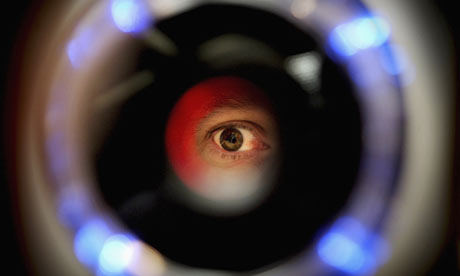Japan's Apocalypse

Despite a disaster multiples worse than Chernobyl, major media reports all along downplayed it. Now they largely ignore it, moving on to more important things like celebrity features and baseball's opening day, besides pretending American-led Libya bombing is well-intended when, in fact, it's another brazen power grab - an imperial war of conquest, explained in numerous previous articles. The horror of all wars aside, waged solely for wealth and power, never humanity, Japan deserves regular top billing, given its global implications and potential millions of lives affected. Ignoring it is scandalous, yet it's practically disappeared from television where most people get news, unaware only managed reports are aired omitting vital truths.
Over three weeks and counting, Japan's crisis worsens. Radiation levels in Fukushima's underground tunnel water reached 10,000 times above normal and rising. In nearby seawater, they're 4,385 times too high. Heavy rainfall exacerbates the problem. Food, water, air and soil contamination is spreading.
On March 31, New York Times writer Henry Fountain headlined, "Cleanup Questions as Radiation Spreads," saying:
At issue is "how to clean up areas that have been heavily contaminated by radioactivity," stopping short of suggesting they're dead zones that may affect all northern Japan, an area comparable to Pennsylvania, potentially making it uninhabitable.
On March 31, the IAEA (the industry's global promoter) "said a soil sample from Iitate, a village of 7,000 about 25 miles northwest of the plant, showed very high concentrations of cesium-137," a harmful gamma ray-producing isotope, contaminating air, water and soil for decades.
Levels found are "double" those in Chernobyl's dead zone, raising concerns about extending Japan's evacuation, not done so far. Moreover, they're rising daily and will continue for months, perhaps years, creating permanent contamination combined with uranium, plutonium, and other hazardous toxins.
On April 1, Al Jazeera headlined, "Japan nuclear evacuation will be 'long term,' " saying:
"Residents of evacuated areas....have been warned that they may not be able to return to their homes for months," if ever, given increasing hazardous contamination levels. Cleanup will take decades and fall far short of making areas toxin-free.
Experts call conditions "unchartered territory," wondering what, if anything can be done. The nuclear genie is out of the bottle. The imponderables are huge, and potential implications staggering.
On March 25, Helen Caldicott highlighted "a medical problem of vast dimensions," saying "the situation has grown increasingly grave." A week later, it's worse with no end of crisis in sight, Caldicott calling nuclear power's harm "the greatest public health hazard the world will ever see."
On March 31, physicist Michio Kaku said "three (Fukushima) raging meltdowns" plus one or more (melting) spent fuel ponds opened to the air are ongoing, adding:
"This is huge," involving "uncontrolled radiation releases into the environment," including plutonium, the most toxic substance known. "A speck of plutonium, a millionth of a gram, can cause cancer if ingested." Moreover, if the plant site is abandoned, "we could be in free fall." Before it ends, Kaku believes it may far exceed Chernobyl. Perhaps it already has, though no one's admitting it or knows for sure.
Every Radiation Dose Is an Overdose
Experts like Harvey Wasserman agree. On March 27, he headlined, " 'Safe' Radiation is a Lethal TMI Lie," saying:
-- No amount of radiation is safe; they're harmful, cumulative, permanent and unforgiving;
-- It's why pregnant women aren't x-rayed;
-- "Any detectable fallout can kill;"
-- Fukushima's "serious danger" requires everyone to "prepare for the worst;"
-- "Fukusima is deadly to Americans;"
-- Minimally, "it threatens countless embryos and fetuses in utero, the infants, the elderly, the unborn who will come to future mothers now being exposed;"
-- There's "no defense against even the tiniest radioactive assault;"
-- "Science has never found such a 'safe' threshold, and never will;"
-- "All doses, 'insignificant' or otherwise, can harm the human organism;"
-- Three Mile Island (TMI) victims experienced "cancer, leukemia, birth defects, stillbirths, sterility, malformations, open lesions, hair loss, a metallic taste and much more....;"
-- Pennsylvania's Department of Agriculture also documented the farm and wild animal death and mutation rate;
-- TMI was minor compared to Fukushima; its radiation is "pouring into the air and water;" operators reported levels "a million times normal, then retracted the estimate to a 'mere' 100,000;"
-- Most frightening is what's unrevealed; coverup after TMI and Chernobyl was scandalous;
-- All North America and Europe are affected, especially by rain, increasing soil and water contamination;
-- "Fukushima's worst may be yet to come," by far the worst ever environmental and human disaster;
-- "The response of the Obama Administration has been beyond derelict," claiming Americans face no threat; he lied and now remains silent;
-- " 'Impossible' accidents continue to happen, one after the other, each of them successively worse."
What will it take to stop this monster? Because of enormous industry profits, perhaps it will take ending human life to convince skeptics.
Candidate v. President Obama
In 2008, candidate Obama was skeptical about nuclear power, telling NBC Meet the Press host Tim Russert on January 15, 2008:
Unless a "safe way to produce (and store) nuclear energy (is found), then absolutely we shouldn't build more plants."
At a January 13, 2008 town hall meeting, he said:
"Nuclear is bad because we don't know how to store it. And it poses security hazards."
On December 30, 2007, he said:
"....(N)uclear energy is not optimal so I am not a nuclear energy proponent....I am much more interested in solar and wind and bio-diesel (to produce) clean energy and (new) jobs....I have not ruled out nuclear (but) only so far is it is clean and safe."
Earlier he said:
-- "Nuclear power is not working for us right now;"
-- The Nuclear Regulatory Commission is "a moribund agency that needs to be revamped, and it's become captive of the industries that it regulates and I think that's a problem."
He also called storing nuclear waste at Yucca Mountain "a bad idea." Nuclear power "has a host of problems that have not been solved," and "I don't think there's anything that we inevitably dislike about nuclear power. We just dislike the fact that it might blow up....and irradiate us....and kill us. That's the problem."
Even candidate Obama was less than candid. On July 4, 2007, CounterPunch co-editor Jeff St. Clair and contributor Joshua Frank called him "another automaton of the atomic lobby" in their article headlined, "Barack Obama's Nuclear Ambitions," saying:
During the 1990s, "the atom lobby....had a stranglehold on the Clinton administration and now they seem to have the same suffocating grip around (Obama's) neck, (the Democrat's) brightest star...."
It showed (and still does) in generous industry contributions. As of late March 2007, he "accepted $159,800 from executives and employees of Exelon, the nation's largest nuclear power plant operator." They previously funded his 2004 Senate campaign, contributing $74,350.
In return, he helped kill an amendment to stop large industry loan guarantees "for power-plant operators to develop new energy projects the public will not only pay millions of dollars in loan costs but will also risk losing billions of dollars if the companies default."
In 2005, Nuclear News praised him for "keeping an open mind" on nuclear power. In other words, for supporting it despite the unforgiving hazards. "The atom lobby must certainly be pleased." Why else would they help elect him president.
A previous article explained Obama's longstanding industry ties, including with Chicago-based Exelon. Its web site says it operates 17 reactors at 10 stations in Illinois, New Jersey and Pennsylvania, providing 20% of US nuclear capacity.
In addition, Obama's former top political aide, David Axelrod, once lobbied for Exelon, and Rahm Emanuel, his former White House chief of staff (now Chicago's mayor-elect), profited handsomely as an investment banker, arranging mergers that created the company.
In his proposed budget, Obama includes $36 billion in industry loan guarantees for new facilities - free money. He's committed to jump-start new construction, halted since Three Mile Island in 1979. Already takers are lining up, 20 or more applications pending before the NRC.
In fact, he and Energy Secretary Steven Chu downplay Fukushima, ignoring industry hazards, including 23 US nuclear plants at 16 locations using the same failed GE-designed Mark 1 containment vessels. Earlier, the NRC called them susceptible to explosions and failure because of cost-cutting design features.
Its 1985 study warned that failure within the first few hours after a core meltdown was very likely. Its top safety official at the time said it had a 90% probability of failing if an accident caused overheating and melting. When reactor cooling is compromised, the containment vessel is the last line of defense. However, GE's design is hazardous and unsafe.
Today, Obama supports the NRC, the same agency Karl Grossman calls "an unabashed promoter of nuclear power," the one candidate Obama called "moribund, (a) captive of the industries it regulates." The one with a perfect record - never having denied applicants new plant licenses. The one now dangerously extending operating lives of aging, poorly maintained plants with deplorable safety records to 80 years, assuring multiple likelihoods of trouble.
It now says no new regulation or oversight is needed. No moratorium on new construction or old plants will be instituted, and, in fact, Vermont's trouble-plagued Yankee plant (using the same type Fukushima reactor) got a 20-year extension instead of being shut down.
That in spite of recent reports highlighting serious industry "near misses," safety violations, failures to reveal legally-required information regarding defective equipment, electrical supply system inadequacies, and other examples of industry mismanagement and criminality, risking an American Fukushima disaster.
According to nuclear technician Tom Saporito:
"The administration, including the president of the United States, is recklessly endangering the population by promoting the construction of nuclear plants and by not taking affirmative action to deal with known safety problems."
In fact, shutting the industry down is crucial, especially as Grossman, a longtime industry expert, says:
"Safe, clean, renewable energy technologies fully implemented can provide all the power we need - and energy that we can live with" safely, unlike the hazardous nuclear roulette played each day these ticking time bombs operate.
As president, however, Obama fronts for Wall Street, war profiteers, Big Oil, Big Pharma, other corporate favorites, and his nuclear industry friends, risking a major disaster to assure generous 2012 campaign contributions for another four years to complete wrecking America and other nations globally. That's his "change we can believe in" plan, not the one sold to constituents.
By Stephen Lendman
http://www.thepeoplesvoice.org/TPV3/Voices.php/2011/04/02/japan-s-apocalypse






 Pro-family advocates work to restore the definition of marriage for the sake of children and family life. As such, it's easy to explain the pro-family position without referring to homosexuality. However, many Canadians cannot see beyond the emotional "gay rights" argument, to the real impact of homosexual "marriage" on society. Many people reason, "Gee, if gay people are born that way, isn't it unfair to stand in the way?" On this basis alone, many Canadians support same-sex marriage. Most Canadians actually believe that scientists have found a "gay gene". That myth is aggressively promoted by gay lobbyists and the media, but it has no foundation in science. Hence the need to address homosexuality directly.
Pro-family advocates work to restore the definition of marriage for the sake of children and family life. As such, it's easy to explain the pro-family position without referring to homosexuality. However, many Canadians cannot see beyond the emotional "gay rights" argument, to the real impact of homosexual "marriage" on society. Many people reason, "Gee, if gay people are born that way, isn't it unfair to stand in the way?" On this basis alone, many Canadians support same-sex marriage. Most Canadians actually believe that scientists have found a "gay gene". That myth is aggressively promoted by gay lobbyists and the media, but it has no foundation in science. Hence the need to address homosexuality directly. Following the death of his gay lover from AIDS, researcher Simon LeVay conducted a test to compare the size of a brain structure known as INAH3, which has been linked to sexual behaviour in animals. He studied brains from cadavers of 6 women (presumed to be heterosexual), 18 men known to have been homosexual, and 16 men presumed to have been heterosexual. LeVay reported that INAH3 was larger in heterosexual men than in women, but also larger in heterosexual men than in homosexual men. This result LeVay concluded, "suggests that sexual orientation has a biological substrate".(2)
Following the death of his gay lover from AIDS, researcher Simon LeVay conducted a test to compare the size of a brain structure known as INAH3, which has been linked to sexual behaviour in animals. He studied brains from cadavers of 6 women (presumed to be heterosexual), 18 men known to have been homosexual, and 16 men presumed to have been heterosexual. LeVay reported that INAH3 was larger in heterosexual men than in women, but also larger in heterosexual men than in homosexual men. This result LeVay concluded, "suggests that sexual orientation has a biological substrate".(2) Two researchers (Bailey & Pillard) identified homosexuals who had identical twin brothers. They then surveyed the sexual orientation of these twins. They theorized that if identical twins share the same trait of homosexuality at a higher rate than, say, fraternal twins, non-twin siblings, or adoptive siblings, then that could be taken as evidence of a genetic component.(5) In their study they found that when one identical twin was homosexual, 52% of the time his identical twin was too.
Two researchers (Bailey & Pillard) identified homosexuals who had identical twin brothers. They then surveyed the sexual orientation of these twins. They theorized that if identical twins share the same trait of homosexuality at a higher rate than, say, fraternal twins, non-twin siblings, or adoptive siblings, then that could be taken as evidence of a genetic component.(5) In their study they found that when one identical twin was homosexual, 52% of the time his identical twin was too. A study by geneticist Dr. Dean Hamer, theorized the existence of a gene influencing the development of homosexuality that is transmitted on the X chromosome. The study made headlines and was promoted by the media as "proof".
A study by geneticist Dr. Dean Hamer, theorized the existence of a gene influencing the development of homosexuality that is transmitted on the X chromosome. The study made headlines and was promoted by the media as "proof".
 However, the authors of Essential Psychotherapy and its Treatment, a standard text in medical schools, disagree with the APA's leadership, and say that the newer studies vindicate sexual reorientation therapy.
However, the authors of Essential Psychotherapy and its Treatment, a standard text in medical schools, disagree with the APA's leadership, and say that the newer studies vindicate sexual reorientation therapy.  Former APA President Dr. Robert Perloff has publicly endorsed the National Organization for the Research and Treatment of Homosexuality (NARTH), the largest American organization devoted the treatment of unwanted homosexual attractions, and has denounced the APA's campaign against such treatment.
Former APA President Dr. Robert Perloff has publicly endorsed the National Organization for the Research and Treatment of Homosexuality (NARTH), the largest American organization devoted the treatment of unwanted homosexual attractions, and has denounced the APA's campaign against such treatment. His study, published in the peer-reviewed Archives of Mental Health in 2003, found that a majority of his sample of 247 people had developed heterosexual urges or had ceased to be predominantly homosexual after only one year of therapy. None of the subjects said that they had been harmed in the process.
His study, published in the peer-reviewed Archives of Mental Health in 2003, found that a majority of his sample of 247 people had developed heterosexual urges or had ceased to be predominantly homosexual after only one year of therapy. None of the subjects said that they had been harmed in the process. Another apologist for child sex abuse who has received acceptance, affirmation, and recognition from the mental health professions is Dr.
Another apologist for child sex abuse who has received acceptance, affirmation, and recognition from the mental health professions is Dr.